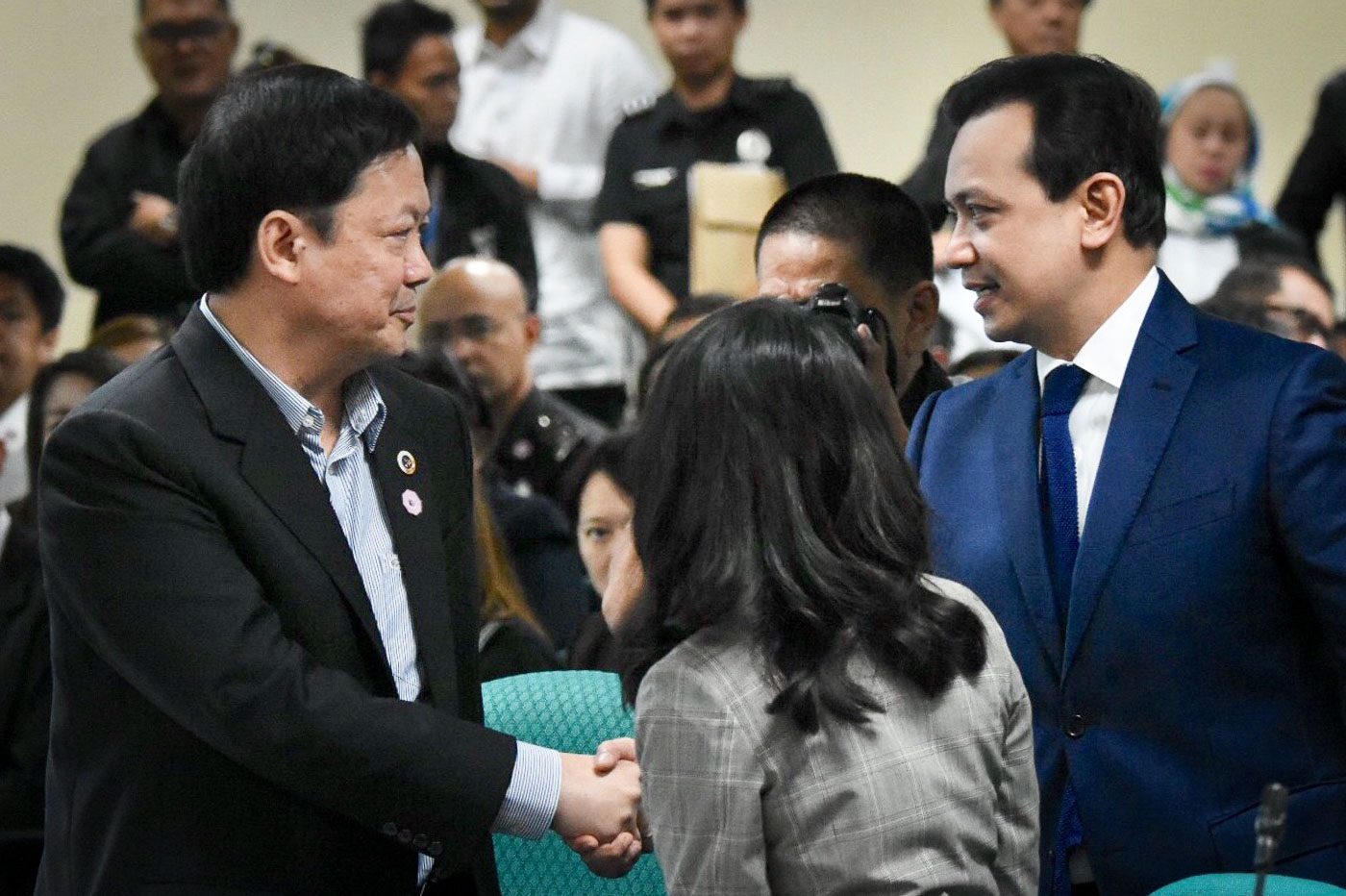SUMMARY
This is AI generated summarization, which may have errors. For context, always refer to the full article.

MANILA, Philippines – While Malacañang seems eager to send Solicitor General Jose Calida straight to the Court of Appeals (CA) to have Senator Antonio Trillanes IV jailed, the Department of Justice (DOJ) contradicted that plan and said it will file an appeal before the lower court first.
“The DOJ will file, not later than Friday, a motion for partial reconsideration of the order of Makati Regional Trial Court (RTC) Branch 148,” said Justice Secretary Menardo Guevarra on Tuesday, October 23.
Guevarra’s statement was issued hours after Chief Presidential Legal Counsel Salvador Panelo said Solicitor General Jose Calida will go straight to the CA.
“He will not file a motion for reconsideration, but go immediately to the Court of Appeals and appeal the ruling of the court with respect to the non-issuance of warrant of arrest,” Panelo said.
But Guevarra said that “it is the DOJ who will decide what legal step to take,” adding also that “Malacañang has nothing to do with our legal strategies.”
“The CA is surely an option. The question is, at what point,” Guevarra said, observing hierarchy of court where an appeal is filed first at the lower court before it is elevated to a higher court. (READ: EXPLAINER: What Judge Soriano means in saying Duterte’s Proclamation No. 572 is ‘legal’)
‘Best evidence’ rule
The DOJ will appeal the part of the ruling where Branch 148 Judge Andres Soriano said Trillanes was able to prove that he filed an application form and made the required admission of guilt.
Those issues were the basis of President Rodrigo Duterte’s Proclamation No. 572 in trying to void Trillanes’ amnesty.
In his 33-page decision, Soriano said that the best evidence rule does not apply.
Under the best evidence rule, there is no better proof that Trillanes filed an application but the actual application form itself. That was the DOJ’s main argument, which was earlier upheld by Branch 150 Judge Elmo Alameda.
“Jurisprudence dictates that when the issue is the existence and due execution of a document and not its contents, the best evidence rule cannot be invoked and the Court need not address or consider the requisite for admissibility of secondary evidence,” said Soriano.
Soriano gave weight to Trillanes’ secondary evidence such as affidavits of witnesses who saw him apply, as well as military officials who processed his application.
“It is sufficient that the party offering secondary evidence establish the existence and due execution of the document by preponderance of evidence, and the Court, in such a case may admit secondary evidence even without accounting for the original,” said Soriano.
Guevarra earlier said that due to the different findings of Soriano and Alameda, the higher courts – ultimately the Supreme Court – will have to come up with the uniform decision that will be binding on all. – Rappler.com
Add a comment
How does this make you feel?
There are no comments yet. Add your comment to start the conversation.